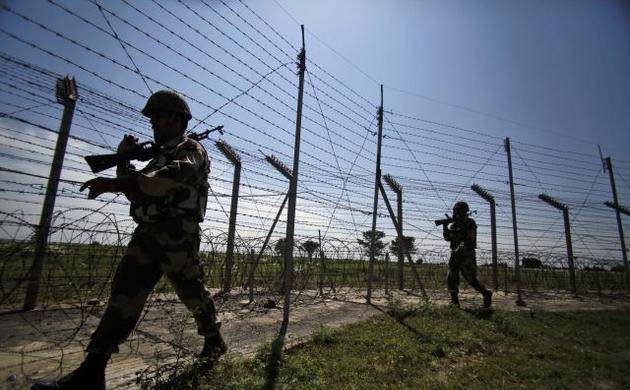NEW DELHI: In a first-of-its kind step, the country’s largest border-guarding force BSF has launched two ambitious projects to curb suicides and depression amongst its jawans and has introduced a ‘wellness quotient assessment’ test in their annual medical checkup.
The about 2.65-lakh personnel strong force, tasked to secure the two most important Indian borders along Pakistan and Bangladesh, has earmarked select troops locations, men and women for the conduct of the maiden and scientifically prepared pilot projects.
BSF Director General K K Sharma, in an interview, said he has initiated the projects with a concern to reduce such instances in the force on a priority basis.
“It is true that deaths due to heart attacks, suicides and accidents have killed more troops than in operations in the past. But, as far as suicides is concerned, this number has come down due to a number of steps we have taken and a number of capsule courses on stress management that were started.
“We are doing some new things now, so that there is an early identification of such personnel (who are in stress or in trouble) and such instances are reduced to the best extent possible,” the BSF DG said.
What we have launched recently is a ‘wellness quotient assessment test’, the DG said, adding it is a multi-point questionnaire which is being “linked” to the annual medical test of jawans and officers.
Sharma, a 1982-batch IPS officer, said under this pilot project, troops will have to reply to a variety of questions relating to a various life situations, challenges and conditions and these questions have been prepared by expert mental counsellors and doctors.
The test is aimed to identify those troops who need help or counseling.
“What we know is that more than 95 per cent people in the force are normal. The minor cases we can take for counseling. A minuscule percentage of cases we will give special medical attention. The effort is that early detection (of a troop in trouble) happens,” the DG said.
Records state that while in 2014 there were 46 suicides in the BSF, these numbers reduced to 27 in 2015 and 24 in the last year.
The jawans of the force are deployed for long stints at inhospitable and harsh climate areas along the Indo-Pak and Indo-Bangla borders, where they cannot keep their families for years together.
The second pilot project launched in the BSF in this context is called the ‘mentor-mentee’ system.
“There are people who are natural counselors. We are identifying such troops in the force. Such personnel can be further groomed to act as counselors and experts who would identify a buddy in trouble, help him or her and seek help of superiors to bring comfort to them,” he said.
Such troops (mentors), the DG said, will also train others (mentee) in combating stress and taking correct decisions when faced with issues that create mental trouble.
“I am trying to handle this issue of depression, suicides, negativity amongst the personnel on a priority basis. We want that the force personnel to have wholesome wellness,” Sharma said.
He added that replacing yoga with the old physical training exercises in the BSF sometime back has shown results that it is bringing “positive changes.”
The DG said an analysis of the cases of suicides and stress in the BSF found that troops commit suicide immediately after coming from leave.
In 90 per cent cases, the BSF boss said, the trooper came back from leave and in the next 10-15 days they took the drastic step.
It has been found that the tension and stress which the victim had, was of domestic nature.
“There have been no operations related suicides in the last five years since I am here (in the BSF),” he said, adding it has been found that issues concerning marital life, family disputes, property disputes, education of children and similar subjects forced the personnel to take the extreme step and end their lives.
The force has also got prepared a 40-minute movie for its troops that chronicles their hard duties and challenges on the border and other internal security combat theaters.
A CD of this film is provided to the troops when they go on leave and their families can see it and appreciate their job challenges and help them in balancing work and home. (AGENCIES)


